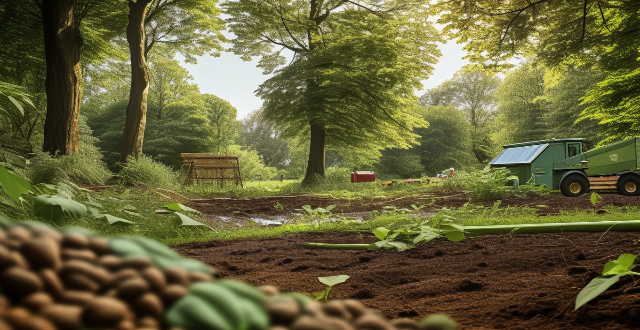Climate change has significant effects on biodiversity and ecosystems, including habitat loss, changes in species distribution, altered ecosystem functioning, extinction risk, and impacts on human well-being.

The Effects of Climate Change on Biodiversity and Ecosystems
Climate change is one of the most pressing environmental issues facing our planet today. It has far-reaching consequences for biodiversity and ecosystems, affecting everything from small organisms to entire ecosystems. Here are some of the key effects:
1. Habitat Loss and Degradation
Climate change can cause significant changes in habitats, leading to their loss or degradation. This can happen through processes such as sea level rise, desertification, and changes in precipitation patterns. These changes can make it difficult for certain species to survive in their current habitats, leading to declines in biodiversity.
2. Changes in Species Distribution
As temperatures and other environmental conditions change, many species may need to move to new areas to find suitable habitats. This can lead to shifts in species distribution, with some species moving further north or to higher elevations. However, not all species are able to move easily, which can limit their ability to adapt to changing conditions.
3. Altered Ecosystem Functioning
Changes in temperature and precipitation patterns can also affect how ecosystems function. For example, warmer temperatures can lead to increased evaporation rates, which can reduce water availability for plants and animals. This can have cascading effects throughout the ecosystem, affecting everything from plant growth to animal behavior.
4. Extinction Risk
Climate change has been identified as a major driver of extinction risk for many species. As habitats change and species struggle to adapt to new conditions, some may be unable to survive. This can lead to declines in biodiversity and even the extinction of certain species.
5. Impacts on Human Well-Being
Finally, it's worth noting that climate change also has significant impacts on human well-being. Many people rely on natural resources like clean water and food that are provided by healthy ecosystems. As these systems are disrupted by climate change, it can lead to negative consequences for human health and well-being.